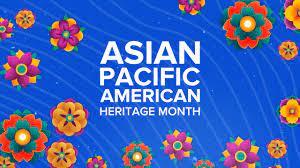As Asian American and Pacific Islander (AAPI) Heritage Month has come to a close, it is important to recognize how far we have come, but also how far we need to go to commemorate AAPI individuals.
The origin of AAPI Heritage Month started in 1977, when Jeanie Jew, a Capitol Hill staffer, approached Representative Frank Horton with the idea to commemorate Asian Americans and Pacific Islanders. Ms. Jew’s great grandfather had immigrated to the United States from China to help build the transcontinental railroad. Rep. Horton later introduced the legislation that established a “Pacific/Asian American Heritage Week,” which was eventually signed by President Jimmy Carter in October of 1978. In 1990, Congress passed legislation to extend the week to a month-long celebration of AAPI heritage and traditions.
Throughout U.S. history, AAPI individuals have impacted our society immensely. For example, Chien-Shiun Wu (the “First Lady of Physics”) was the only Chinese person to work on the Manhattan Project in 1944. Dalip Saund was the first Asian-American, Indian American, and first Sikh U.S. Representative sworn into Congress in 1957. More recently, Kamala Harris became the first person of South Asian descent to become Vice President.
While the commemoration of AAPI individuals is important, we must also acknowledge the ongoing struggles for our AAPI friends and family as violence against Asian Americans continues to rise in the United States. In 2020, Asian American hate crimes rose 73% from 2019, according to the FBI. In March 2021, a 21-year-old man shot and killed eight women at a spa in Atlanta – six of those women were Asian Americans. The rise in hate crimes against the Asian American community and the publicity it brings shines light on the decades of animosity Asian Americans have endured, much of which has been ignored.
To combat this rise in hate, the organization Stop AAPI Hate has suggested numerous ways for individuals to involve themselves in anti-AAPI racism efforts. First, education is fundamental to recognize the impact anti-Asian hate has in our communities. Organizations such as Stop AAPI Hate have a plethora of resources regarding education on AAPI history, immigration, discrimination, and more. Second, engaging with AAPI organizations and issues is vital. We must empower individuals to speak out against hate, urge our elected officials to increase resources for survivors of AAPI hate and their families, and enact robust civil rights laws at the local and state level condemning hate.
While we have celebrated the contributions AAPI individuals have made this past month and will continue to do so, it is important to recognize the issues that still impact AAPI individuals in our community and the advancements that must be made to stop hate.
Authored by Emily White, a summer associate in CIPRIANI & WERNER, P.C.’s Philadelphia office. Ms. White is a student at Drexel University – Class of 2023.

